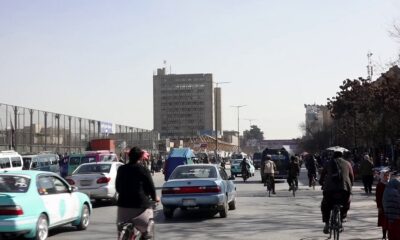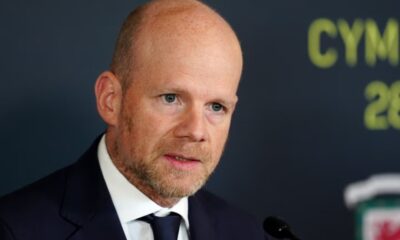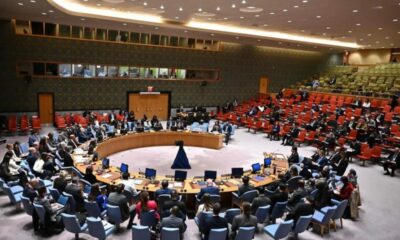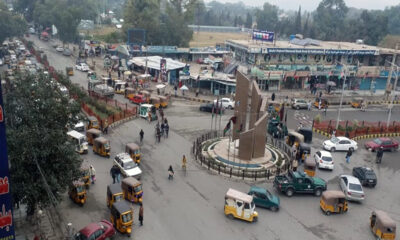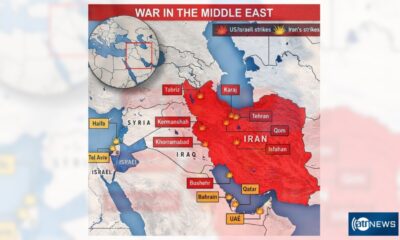Latest News
Former UNAMA chief gives frank opinion on current crisis
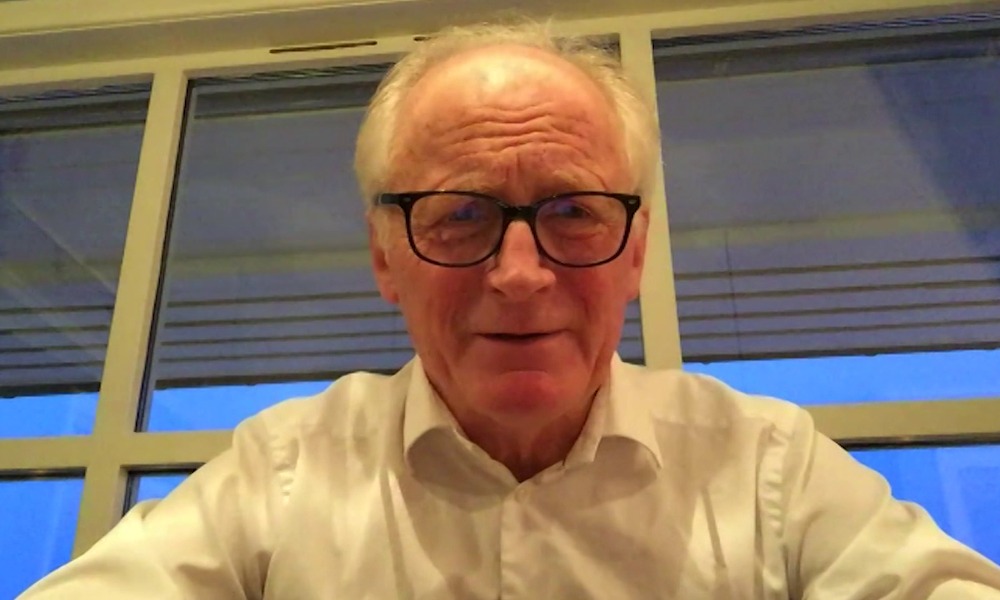
Kai Eide, former head of UNAMA has pointed a finger at Afghanistan’s leaders and said there is little unity among them and that hostile statements made could undermine the peace process.
Referring specifically to the first vice president, Eide said: “I see Amrullah Saleh, the vice president, constantly (making) what I would call rather poisonous statements.
“Yes we need a reduction in the level of violence, but we also need a reduction in the level of polemics that are being thrown out there,” he said adding that this affects “the atmosphere in a bad way”.
In an exclusive interview with Ariana News, Eide said he was shocked at the lack of preparation for peace talks on the part of the Afghan government.
He said discussions had been held for months, ahead of the launch of negotiations in Doha, but that government had been wholly underprepared for the talks.
One example he cited was that members of the High Council for National Reconciliation were only appointed in the lead up to the start of the peace talks. He said the lack of preparedness was “shocking” to him.
He also blasted government and said there was no unity among its leaders and that consensus is needed among Afghan politicians adding that
He said the insufficient preparations for peace talks was “shocking” to him even though officials have had a long time to get the structure right.
He questioned the reason for this and asked if this was “foot dragging or what is the behind this. Certainly there is controversy among the government leaders.”
He also questioned why a technical team for the peace talks had only recently been established and pointed out that modalities and procedures are difficult topics to discuss and decide on and said these can not be discussed just days before negotiations resume.
Clearly frustrated over the speed at which things have been done he said: “Get a structure in place!.”
Regarding the second round of talks, he said he is “worried” that the republic’s team is not ready but also stated that he is not sure if the Taliban team really knows what they want from this round of negotiations.
He said to date the Taliban has really only focused on discussions of a military nature opposed to talks which are centered on civilian and political-related topics.
Asked about the Taliban and who they are, Eide said he thinks they have changed but whether they have changed enough, only time will tell.
However, he said he did not think they can rule Afghanistan again? “No I don’t think so”. Do they want a different relationship with the international community? “Yes I think so,” he said.
“Do they know how to get there? I am very unsure.”
“Their experience is from negotiating military matters now over the last two years and their experience negotiating civilian issues, political issues is very minimal.”
He said he often asks himself whether the Taliban knows themselves where they are heading and what their red lines are.
“Sometimes I hear very combative statements from them regarding issues of key importance.”
On incoming US president Joe-Biden he said he does not think the incoming president will reverse outgoing President Donald Trump’s decision to withdraw troops
But he said he had expected spoilers to come out after the US and Taliban signed their agreement in February last year.
However, what was of serious concern to him was the high levels of violence.
Blunt and to the point he implied that circles within Kabul who do not want the peace talks to progress could be using the high levels of violence as an excuse “to say look the Taliban again. They don’t want to admit. They hiding their face. They really don’t want peace.”
“But I am also worried about the level of violence,” he said implying that if the Taliban, as they claim, are not behind the targeted killings, they “could have reassured the government and the international community” that they would reduce violence “and do it in a way that is visible.
He said violence “is highly counterproductive” and “I wish that would stop immediately”
He also said a ceasefire, although necessary, is “unrealistic at this stage” but what is realistic is that there needs to be a significant reduction of violence – as seen in other conflicts in the past.
Eide stated there is a lack of unity within the Kabul government – which is “frustrating”, especially in light of two “so-called presidents” having taken oath last year which was bad for the Afghanistan democracy.
This was in reference to last year’s election standoff between Ghani and his then CEO Abdullah Abdullah, who is now the Chairman of the High Council for National Reconciliation (HCNR).
He said this was testimony to Afghan leaders not being united – specially after having two election candidates each declare themselves winners and hold their own inauguration ceremonies..
According to Eide, this fiasco not only caused a lot of time to be lost but it also sent out a disappointing message around the world – with the international community asking why could the country’s leaders not unite.
“What I am afraid of is that disagreement is still underlying and hampers the efficiency of the government.
“When you have claims all the time that the agreement is not respected etc; you see Dr Abdullah doing his thing, saying his thing; you see president Ghani saying sometimes other things, and vice president Saleh certainly on a more hostile note whenever he expresses his view.”
“If you want to succeed then you have to be united. And you have to demonstrate a united front,” he said.
Anything else makes you be seen as weak and you cannot afford to be weak in times like this, he said.
On US agreement with the Taliban, Eide said Trump’s plan “to end the endless wars” including the Afghan conflict was not well thought out and that the decision to withdraw troops was based on his election campaign promises to end wars the US is involved in.
“I think the question of withdrawal of American forces and international forces was only a matter of time. It would not have lasted much longer under the circumstances.
But he stressed that there was sometimes “no compromise” even though Afghanistan was a democracy.
Eide said it was not possible to have half a democracy and the system as it is needed to be accepted.
In line with this he said the discussions on what type of political system will be established will “be a great challenge” . He also pointed out that another question was around the rights and freedoms of the individual Afghan, including Afghan women and girls.
He said specifically with rights, for women and children and the media, it was critical that this was at 100 percent. He said one can’t go with 50 percent of rights – and that there was no compromise on this.
He said he did not see how a democratic system and peoples’ rights could be negotiated and that it was clear cut – you either “accept them or you don’t accept them”.
But going back to violence, he said it was critical to get the levels of violence down so as to create a calmer atmosphere so negotiators can sit and discuss issues without being distracted.
He also pointed out that the recent calls by officials and Ghani to hold the talks in Afghanistan was not necessary. He stated that it was normal for peace talks to be held in a third country.
He said by raising these types of issues only distracts from the “central issues that are confronting you at the moment.
On the comments by Saleh, the vice president’s office told Ariana News that the first VP has constantly emphasized the need for a reduction in violence and “Saleh has put all of his efforts for maintaining peace in the country.”
Latest News
Afghanistan expresses deep concern as Middle East crisis intensifies

The Ministry of Foreign Affairs of Afghanistan has voiced serious concern over rapidly escalating political and security tensions in the region, warning that the consequences could negatively affect all neighboring countries.
In a statement issued Sunday, the Islamic Emirate said it is deeply worried about recent strikes carried out by Israel and the United States on targets inside Iran, as well as Iran’s subsequent missile and drone attacks targeting Gulf states.
The statement comes amid one of the most serious regional escalations in years.
Over the weekend, U.S. and Israeli forces launched coordinated strikes on Iranian territory, including high-profile military and leadership targets. Iran responded with waves of missile and drone attacks on U.S. assets and Gulf countries, including the United Arab Emirates, Qatar and Bahrain, prompting airport closures, airspace disruptions and heightened security across the region.
Several Gulf states reported casualties, injuries and material damage, while embassies in multiple countries advised foreign nationals to shelter in place. Commercial aviation and shipping routes have also faced significant disruption as tensions remain high.
Against this backdrop, Afghanistan’s Foreign Ministry stressed that continued military actions violate established international principles, undermine national sovereignty and threaten the territorial integrity of states.
The IEA described the developments as unacceptable and condemnable.
The Islamic Emirate called on all parties to exercise restraint, respect national sovereignty and avoid further escalation. It urged an immediate halt to military operations and a return to dialogue and diplomatic solutions, warning that prolonged instability would have far-reaching humanitarian, economic and security consequences for the broader region.
Latest News
Afghanistan says Pakistani airspace violation over Kabul was thwarted
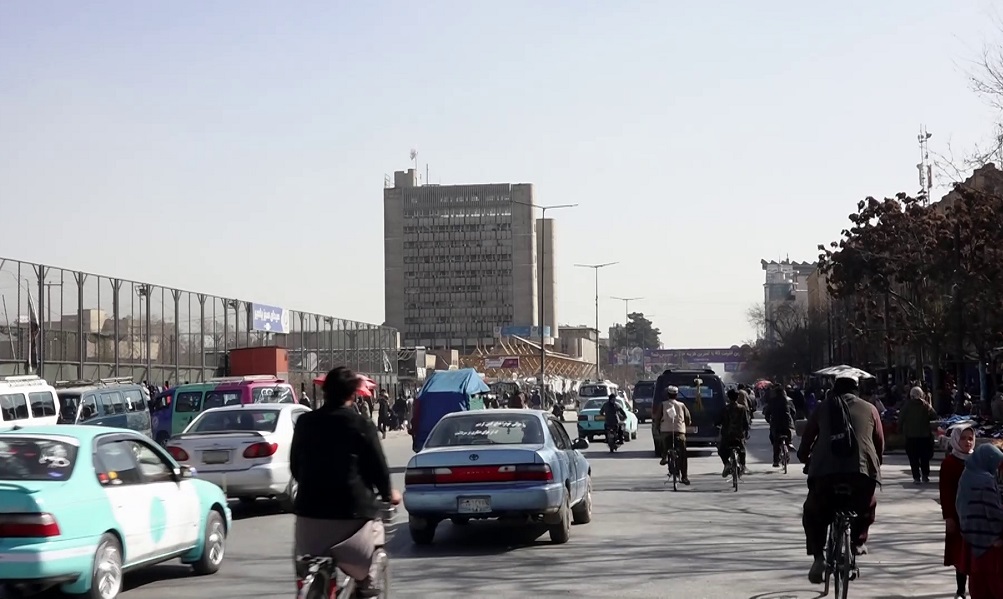
Zabihullah Mujahid, spokesperson of the Islamic Emirate, says Afghan defense forces repelled repeated airspace violations over Kabul on Saturday night by the Pakistani military, assuring the public that the security situation in the capital remains stable.
Mujahid confirmed that Afghan air-defense units targeted incoming aircraft, saying: “Air defence attacks were carried out in Kabul against Pakistani aircraft. Kabul residents should not be concerned.”
Amid rising military tensions between the Islamic Emirate and Pakistan, senior officials in Afghanistan warned that the nation is fully capable of responding to any form of aggression.
Hayatullah Muhajir Farahi, Deputy Minister of Publication at the Ministry of Information and Culture, stated: “The enemies of Afghanistan must understand that Afghans now have the ability to respond decisively to any act of aggression.”
International Sports
FIFA calls for ‘all teams to participate’ in 2026 World Cup amid US–Iran conflict
The developments come just months before Iran is due to travel to the United States for the World Cup, which will be co-hosted by the US, Mexico and Canada.
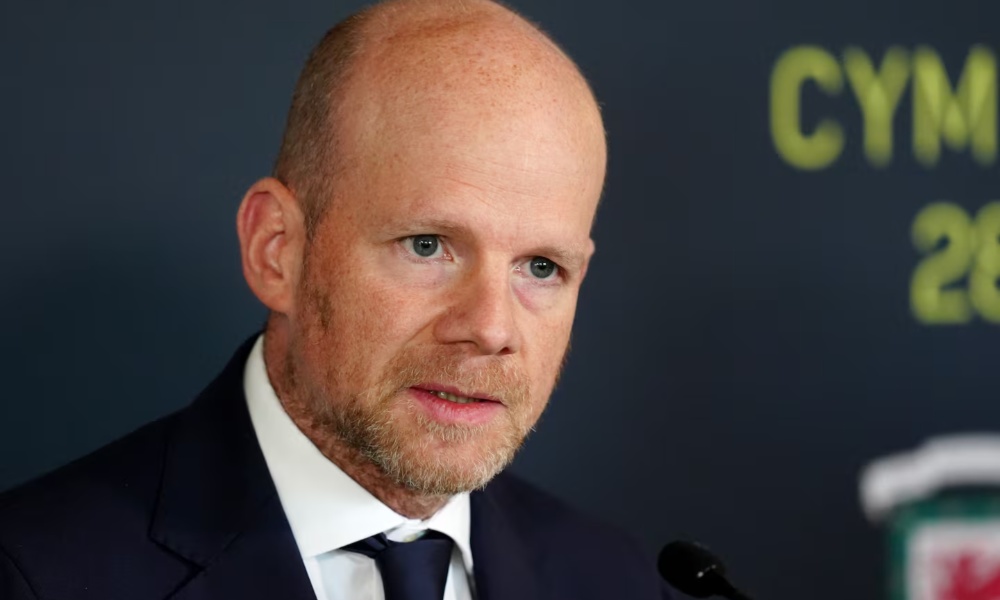
FIFA Secretary General Mattias Grafström says the governing body remains committed to having every qualified nation compete at the 2026 World Cup, despite escalating conflict between the United States and Iran.
The U.S. carried out missile attacks on Iran on Saturday and Sunday, with US President Donald Trump describing the operation as a “major combat mission.” Iran responded with strikes on US air bases in the Gulf, including facilities in the United Arab Emirates, Qatar and Bahrain.
The developments come just months before Iran is due to travel to the United States for the World Cup, which will be co-hosted by the US, Mexico and Canada.
Iran was drawn into Group G alongside Belgium, Egypt and New Zealand. Team Melli is scheduled to play two group-stage matches in Los Angeles on June 15 and 21, followed by a third in Seattle on June 26.
Speaking at the International Football Association Board’s annual general meeting in Cardiff, Wales, Grafström said FIFA is closely monitoring the situation but remains focused on ensuring the tournament proceeds safely and inclusively.
“I read the news this morning the same way you did,” Grafström said. “It is premature to comment in detail, but we will monitor developments around all issues around the world.
“Our focus is on a safe World Cup with all the teams participating. We will continue to communicate with the three host governments as we always do. Everybody will be safe.”
However, questions remain about Iran’s participation due to US travel restrictions. Iran is among 19 countries included in a travel ban announced by the Trump administration in June last year, potentially complicating entry for Iranian citizens.
In December, Iran Football Federation president Mehdi Taj warned that some national team players and staff could face visa denials because of prior military service. Several players have served in the Islamic Revolutionary Guard Corps (IRGC), which the US government designates as a foreign terrorist organization.
The U.S. State Department has not ruled out the possibility that certain Iranian players could be denied visas, adding further uncertainty to Iran’s path to the 2026 tournament.
-

 Latest News1 day ago
Latest News1 day agoPakistani military jet downed in Afghanistan’s Jalalabad, pilot captured alive
-

 Latest News2 days ago
Latest News2 days agoAfghan Air Force conducts airstrikes in Islamabad, other cities
-
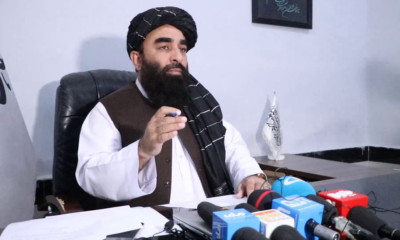
 Latest News2 days ago
Latest News2 days agoIEA: Special circle in Pakistan has launched mission to destabilize region
-

 Sport5 days ago
Sport5 days agoRichard Pybus appointed as head coach of Afghanistan’s national cricket team
-

 World3 days ago
World3 days agoIndia’s Modi backs Israel in address at Israeli parliament
-
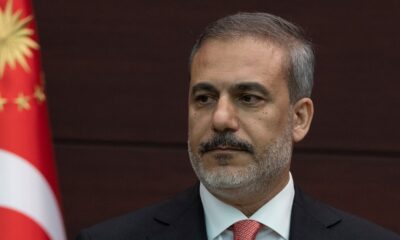
 Latest News2 days ago
Latest News2 days agoTurkey launches initiative to diffuse Afghanistan-Pakistan tension
-
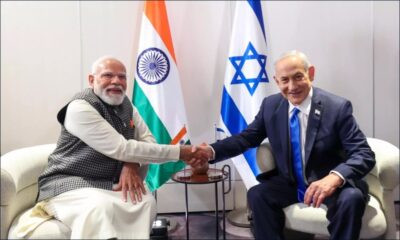
 Regional3 days ago
Regional3 days agoNarendra Modi holds high-level talks after historic address to Knesset
-

 Latest News2 days ago
Latest News2 days agoAfghans say they are united against Pakistan aggression




